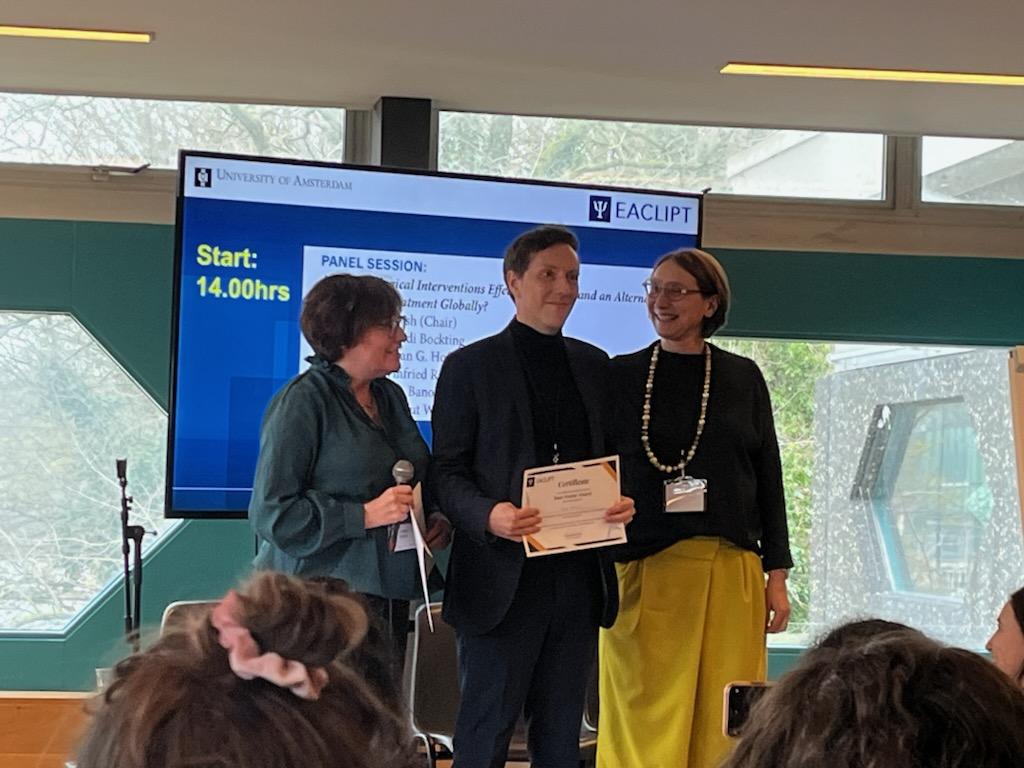Understanding and addressing experiential avoidance
People tend to avoid uncomfortable experiences, such as unpleasant thoughts or emotions, sometimes at all costs. While this desire to escape from distress is understandable, it only provides temporary relief and may eventually exacerbate everyday problems. This phenomenon is known as experiential avoidance.
There is not enough empirical evidence to explain how experiential avoidance works, partly due to the challenges of studying it in real-world scenarios. To address this issue, researchers from SWPS University's Emotion Cognition Lab collaborated with the Polish-Japanese Academy of Information Technology to develop a mobile application. This innovative tool monitors experiential avoidance in study participants' daily functioning. It aims to determine whether momentary interventions could reduce experiential avoidance and consequently mitigate the adverse effects of rumination—engaging in a repetitive negative thought cycle.
Mobile app pilot study
For the pilot study, the researchers recruited participants with high rumination scores. These participants used a psychoeducational program for four weeks, completing tasks and analyzing their thought patterns and rumination.
The preliminary findings are promising. The intervention significantly reduced the users' experiential avoidance, and the participants reported high levels of its acceptability and usability.
Insights gathered from the participatory workshops were used to develop a mobile app that will expand the reach of the intervention and enable a comprehensive assessment of its effectiveness.
Rumination and experiential avoidance are transdiagnostic processes that increase the risk of various mental disorders and impede emotion regulation. We have developed an app with the hope of aiding in the management of recurring negative thoughts. The results of the pilot study and participatory workshops paved the way for a fully functional prototype. The next step is to conduct a substantial randomized controlled study to evaluate the app's efficacy according to evidence-based intervention standards. Importantly, this project thrives on collaboration between an interdisciplinary team of psychologists and computer scientists from the Emotion Cognition Lab and PJAIT's XR Lab.

Dr. Monika Kornacka
Head of the Emotion Cognition Lab
EACLIPT x UMH International Conference
Dr. Steven Barnes, the first author of the poster, presented the study's outcomes during the EACLIPT x UMH International Conference on Urban Mental Health and won the poster contest. Held in Amsterdam in March, the event focused on common mental disorders in a globalized and increasingly urbanized world.
 Dr. Steven Barnes at the EACLIPT x UMH conference
Dr. Steven Barnes at the EACLIPT x UMH conference
Research team
- Steven Barnes, Ph.D.
SWPS University
- Małgorzata Para
SWPS University
- Marta Szastok, Ph.D. / Assistant Professor
SWPS University
- Michał Skorupski
SWPS University
- Fabian Morawiec
SWPS University
- Max Piątek
SWPS University
- Barbara Karpowicz
XR Lab, Polish-Japanese Academy of Information Technology
- Pavlo Zinevych
XR Lab, Polish-Japanese Academy of Information Technology
- Kinga Skorupska
XR Lab, Polish-Japanese Academy of Information Technology
- Stanisław Knapiński
XR Lab, Polish-Japanese Academy of Information Technology
- Wiktor Stawski
UXR Lab, Polish-Japanese Academy of Information Technology
- Maciej Grzeszczuk
XR Lab, Polish-Japanese Academy of Information Technology
- Rafał Masłyk
XR Lab, Polish-Japanese Academy of Information Technology
- Wiesław Kopeć, Ph.D. / Associate Professor
XR Lab, Polish-Japanese Academy of Information Technology
- Monika Kornacka, Ph.D. / Assistant Professor
SWPS University
The project is funded by the Institute of Psychology at SWPS University and the National Science Center under the "Sonata" funding scheme, grant no. 2019/35/D/HS6/02364.